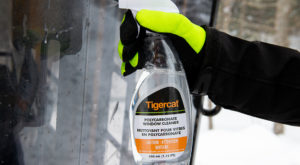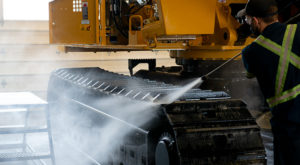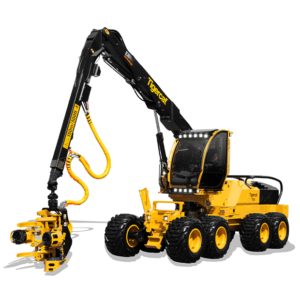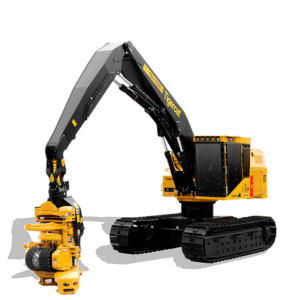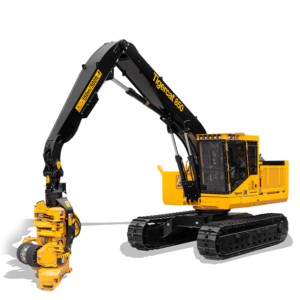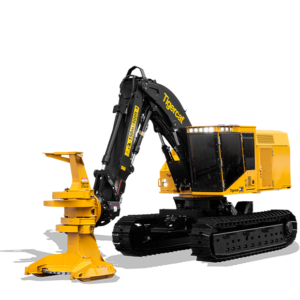Window Care
How to inspect and maintain polycarbonate windows to ensure ongoing operator safety in the cab.
Most windows used in the operator’s stations of Tigercat forestry machines are made from a polycarbonate resin thermoplastic. This material is a replacement for glass when improved strength, durability and safety is required.
The thickness of the material used in a particular cab window is determined by a number of factors including the size of the window opening, the proximity to a safety hazard, the type and severity of the hazard and the requirements of applicable safety standards such as Falling Object Protection (FOPS) or Operator Protection (OPS). Polycarbonate windows used in Tigercat operator’s cabs range in thickness from 9-32 mm (0.375-1.25 in). Properly designed and installed, polycarbonate windows do not require external steel mesh safety guards. This results in enhanced operator visibility.
Polycarbonate manufacturers provide very detailed procedures for suppliers to follow when cutting the material into the required window shapes. A high quality of workmanship s necessary to avoid scratches, nicks or notches both on the window edge and surface. Small defects can lead to cracking in the polycarbonate if the window is highly stressed during impact.
The manufacturers of polycarbonate material also provide guidance in the proper mounting of the windows to the cab structure. Each polycarbonate window in a Tigercat machine is fully supported around the edges by smooth, flat surfaces. The window is cushioned with rubber edge moldings and secured along all sides with bolted steel retaining strips. Careful design and quality control of the manufacture and installation of polycarbonate windows ensures good, long term performance in forestry and logging applications.
Polycarbonate material is expected to resist heavy impact from large branches and falling tree tops and to absorb high levels of energy when contacted by high velocity thrown objects such as wood chips, disc saw blade teeth or broken harvester head saw chain. The outer surfaces of Tigercat polycarbonate cab windows are specially treated with a hard coating to provide enhanced resistance to abrasion and ultra-violet (UV) radiation. The extreme operating environment seen in logging applications heightens the need to regularly inspect and properly maintain polycarbonate cab windows as an essential piece of operator protective equipment.
Inspection and Maintenance
Daily inspection and maintenance is essential to confirm that the window’s ability to protect the operator has not been compromised.
- Inspect all windows daily and immediately after any impacts.
- Check for any damage to the window material or steel structure in the area of the window mounting.
- The edges of the polycarbonate window must be evenly and fully supported on a flat surface around the entire window opening at all times. Bent or dented skylight structures must be replaced immediately. Bent or dented cab structures must be evaluated immediately for possible repair or replacement.

